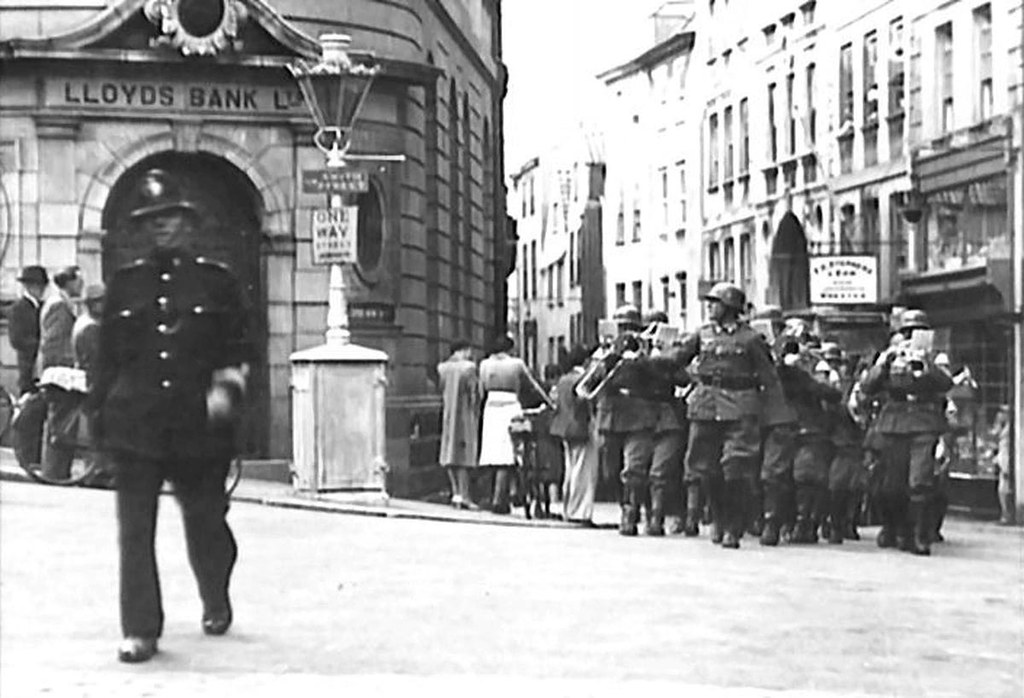The 'Robin Hoods' of Guernsey: the story of the British policemen who robbed the nazis
During World War II, Germany did not manage to invade the United Kingdom, but it did take over several islands belonging to the British Crown.
The only British territories occupied by Nazi Germany
These five islands (Jersey, Guernsey, Alderney, Sark and Herm) are known as the Channel Islands and are located near the French coast of Normandy. Since the Middle Ages they have had a special status, since they are territories of the British Crown that were never incorporated into the United Kingdom, like the Isle of Man, in the Irish Sea.
The resistance efforts of the Guernsey policemen
At the start of the German invasion of these islands, the States of Guernsey Police Service had 33 members: an inspector, a sub-inspector, seven sergeants and 24 constables. At the start of the war, Inspector Sculpher advised the policemen not to leave the island to enlist in the British Army, so they all remained on Guernsey to continue doing their jobs. Their situation under German occupation affected the morale of the agents, since among other things they were obliged to give the military salute to the Wehrmacht officers.

Despite their status as police officers, some of the agents began to collaborate in resistance actions. These actions included cutting telephone wires to sabotage the occupants' communications, stealing fuel from German vehicles, throwing sand into the tanks of those vehicles to immobilize them, and also painting V letters (the symbol of victory promoted by British propaganda to raise morale) throughout the island.
Stealing food from Germans so their neighbors wouldn't starve
In the winter of 1940-1941, food rationing imposed by the occupiers began to cause serious problems for the islanders. While many Guernseys were starving, the Germans had stockpiles of food for their troops for All the island. Some Guernsey policemen began to steal this food to distribute to the civilian population. In the winter of 1941-1942, hunger among the civilian population on the island worsened, and by then virtually all of the Guernsey policemen were involved in stealing food from the occupants. Finally, two of the officers were caught by the Germans stealing food on the night of March 4-5, 1942. During the investigation 17 police officers were arrested, tortured and forced to sign false statements written in German.
The arrested policemen were tried by a German military court. The Guernsey authorities asked the detainees to plead guilty to the charges so that the Germans would allow them to also be tried by the Guernsey Royal Court, a British court, with the promise that all charges would be dropped after the war. The police did so, without taking into account that the Royal Court acted in those years following the dictates of the occupants.

The great injustice they suffered upon their return to the island
Of the 17 detainees, 16 were deported to prisons and forced labor camps, suffering terrible conditions and all kinds of mistreatment. One of them, Herbert Smith, died in captivity. Another of them, Charles Friend, weighed only 45 kg when he was released by the Americans, unable to walk. In 1945, the surviving policemen returned to Guernsey intending to return to their posts, but were unable to. They were prevented from regaining their police status by the authorities due to the conviction handed down by the Guernsey Royal Court Against them. They couldn't even claim a pension. For many years, several of them sued in court, unsuccessfully, to clear their names and get their jobs back.
Today, all those police officers have died, but the families of the officers continue to fight for justice, since the unjust sentence against them, handed down as a result of confessions obtained through coercion and torture by the Germans. Two years ago the BBC and other British media echoed the case, describing those policemen as the "Robin Hood" of Guernsey. Their last hope is to get a royal pardon signed by Queen Elizabeth II. It would be a way to repair, 77 years later, an injustice committed with some agents who acted as heroes to prevent their neighbors from dying of hunger.
The Youtube channel Simple History has published an animated video telling the history of these agents:
Bibliography:
- The policemen's lot. Barry Mudie, Epsom & Ewell Phlatelic Society.
- The 'Robin Hood' policemen who stole from the Nazis. Patrick Clahane, BBC News.
- A burning injustice: the fate of the Guernsey policemen. Helen Hubert, Guernsey Press.
---
Main photo: Ullstein Bild. A British policeman talking to a German soldier in Guernsey in August 1940.
|
Don't miss the news and content that interest you. Receive the free daily newsletter in your email: |
- Most read
- A Corporal of the Regular Forces of the Spanish Army dies in an exercise in Poland
- Portugal confirms that it has begun its transition to the F-35 and indicates bad news for Spain
- The deployment of Spanish soldiers of the Regulars and BRILAT near Russian territory
- Eurofighter vs F-35: the opinions of professional pilots on these advanced fighters
- The hydraulic team that maintains the C-101 Aviojet airplanes of the Patrulla Águila
- The firearms used by the Pontifical Swiss Guard, the smallest army in the world
- Spain will modernize its fleet of firefighting seaplanes and buy seven new DHC-515s

 ES
ES







Opina sobre esta entrada: